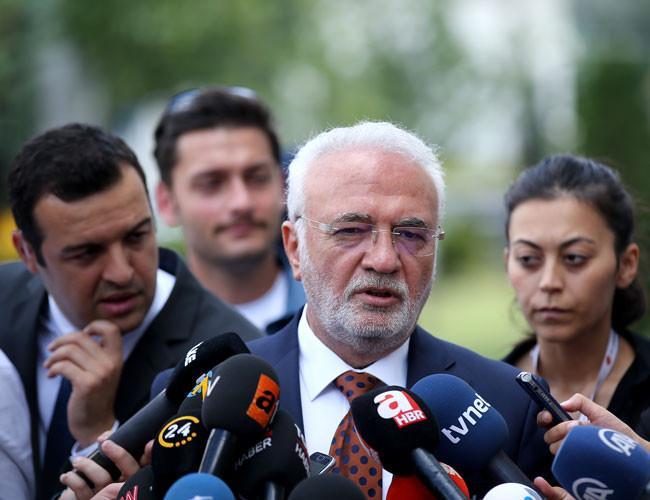Turkish gov’t signals early local election in November
ANKARA

The ruling Justice and Development Party (AKP) has signaled the bringing of local elections forward to November 2018 instead of March 2019, on the condition that opposition parties agree as the process requires a constitutional amendment.
“I think holding local elections on the first or second Sunday of November, which corresponds to a date between Nov. 1 and 8, would be appropriate,” AKP Deputy Parliamentary Group Chair Mustafa Elitaş told the Demirören News Agency on July 2. “But three parties have to agree on that,” he added, in reference to the need to amend the constitution in order to change election dates.
Elitaş’s statement followed comments from Food, Agriculture and Livestock Minister Ahmet Eşref Fakıbaba, who fueled discussions by saying that the first year after a local election is usually “wasted” on preparations and orientation, and it would be better to spend the last months of the year on such preparations.
“As a former local politician, I think such a re-schedule would be the right thing to do,” Fakıbaba said in a televised interview on July 1.
The comments came amid reports that President Recep Tayyip Erdoğan said at a recent top AKP board meeting that the party “will not get out of the election atmosphere.”
“We will prepare for the local elections while there is still an election atmosphere,” Erdoğan reportedly said during the meeting on June 30.
Speculations have also been stirred as the AKP has opted to bring forward the date of its next ordinary congress to August 2018.
Consensus required with the opposition
Bringing local elections forward to an earlier date necessitates a constitutional change, as the constitution says local elections must be held every five years.
A constitutional amendment can only be possible with the votes of a majority in parliament, which corresponds to 400 votes out of 600 seats in parliament. If it receives more than two thirds of the votes, which refers to 360 out of 600, then the change has to be referred to a referendum.
As the AKP and Nationalist Movement Party’s (MHP) alliance has 343 seats in total, consent from opposition parties will be needed in order to bring forward local elections without a referendum.
“Three parties should agree on the issue,” Elitaş said, adding that the main opposition Republican People’s Party (CHP) and the Nationalist Movement Party (MHP) “should come to an agreement.”
“The MHP has announced that there will be no early elections. But if other parties make other statements then the related authorities will make the necessary assessments,” he added.
CHP is cautious
Meanwhile, CHP Deputy Chair Seyit Torun said the party’s local organizations have already started preparations for local elections, with the party’s central administration instructing local organizations to be prepared for an earlier date.
The CHP is ready for an election with all of its organizations. We have made our preparations and we will continue to do so,” Torun said on July 1.
CHP Istanbul deputy Barış Yarkadaş also underlined that the AKP’s rescheduling of its congress is an indication of preparations for early elections, saying he believes the date will be Nov. 4.
“The AKP wants to hold an election before the economic crisis gets worse and its effects on people become visible. The date in their minds is Nov. 4, 2018. All parties would approve that,” Yarkadaş wrote on his official Twitter account on July 1.
The İYİ (Good) Party also said the early election will be assessed in its party administration. “The party will decide if such an election is needed considering Turkey’s economic indications and the ongoing struggle against terror,” it stated.
--
Note: An earlier version of this report mistakenly said a simple majority in parliament was enough for constitutional changes.
















